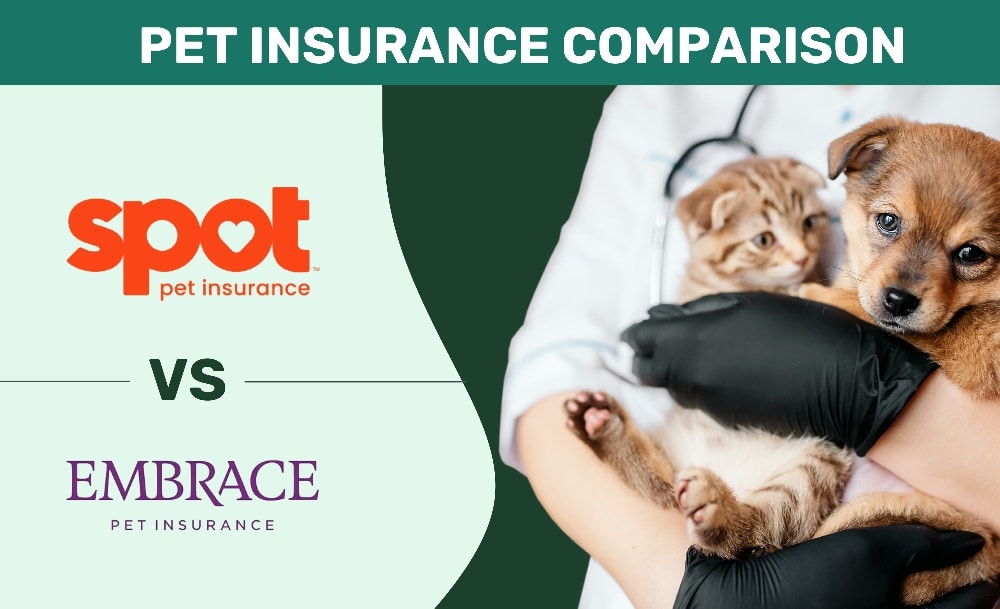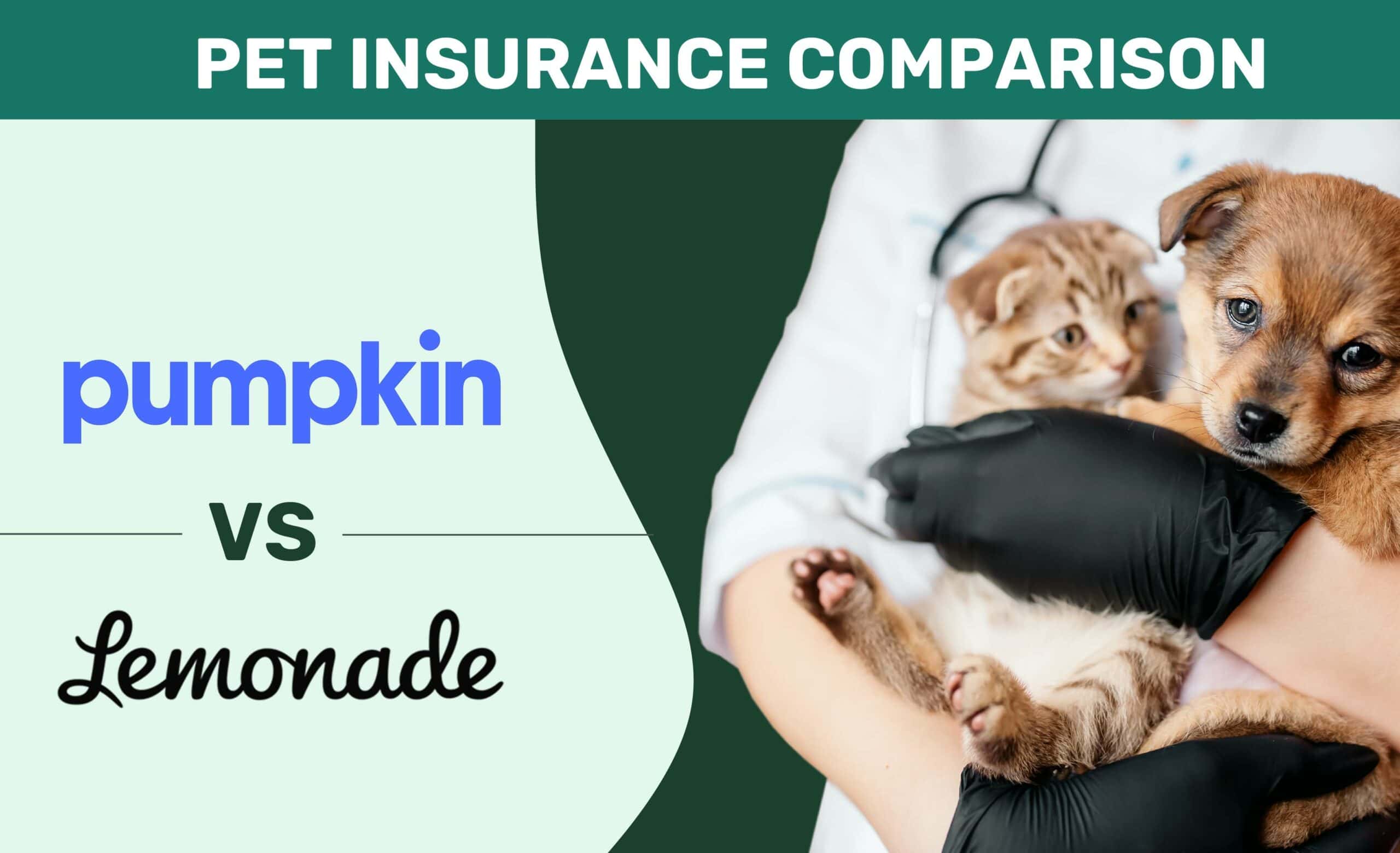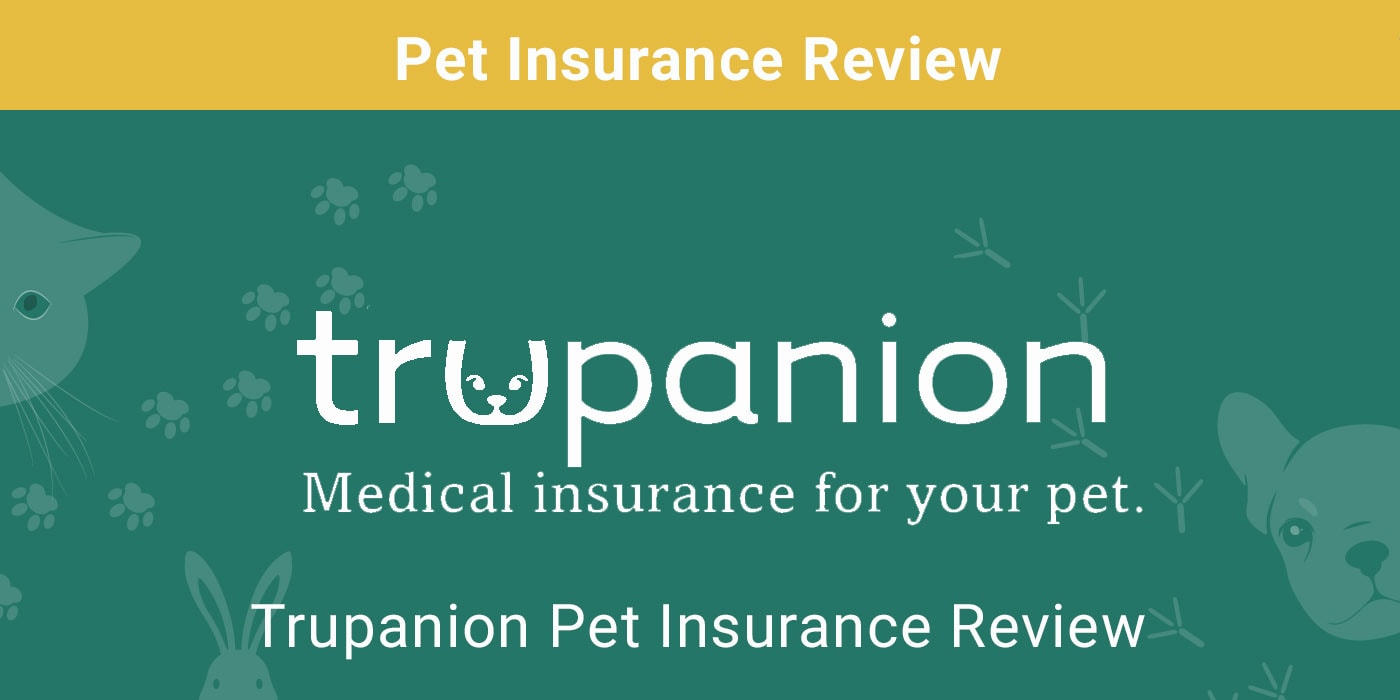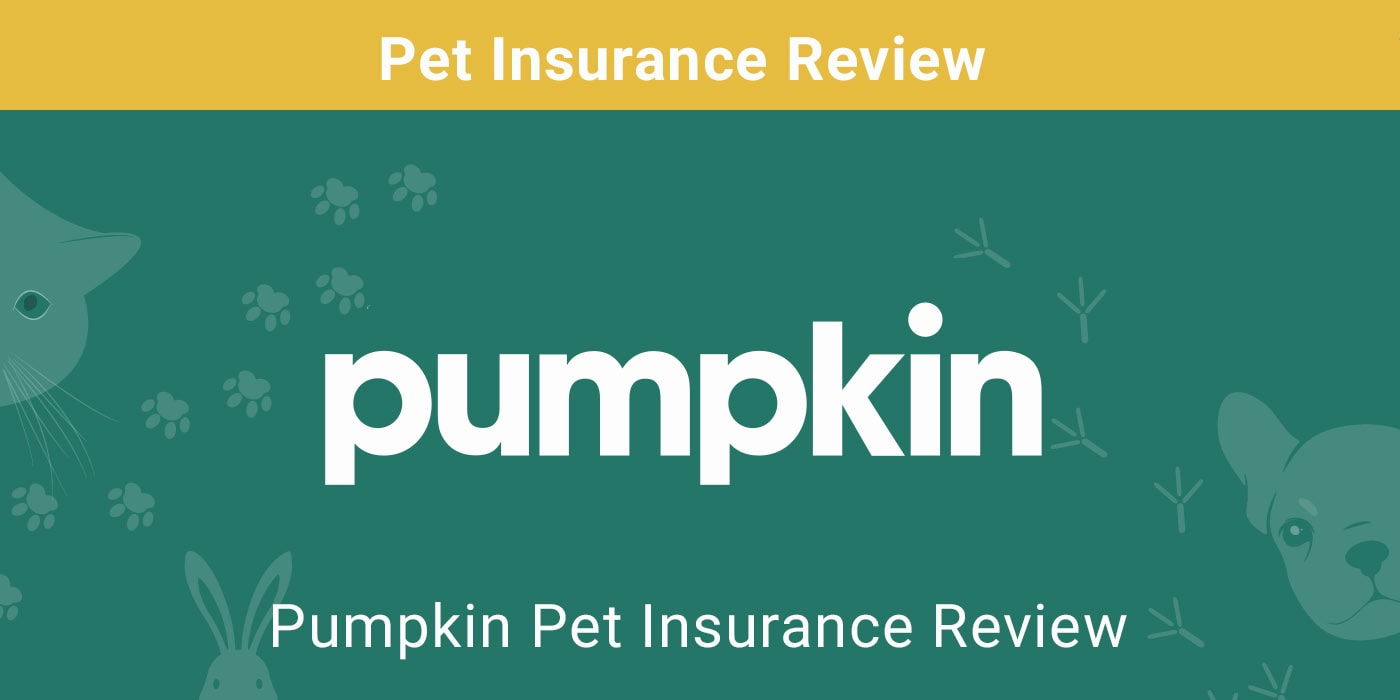
Pet insurance can guard your furry friend against a variety of potentially costly events. Exactly how much you’ll pay, as well as the scope of protection, will vary depending on which pet insurance plan you choose. That said, most plans will provide similar protections at a similar price. The cost to insure your pet generally falls somewhere between $20 and $50 monthly (more for older pets).
The cost to treat a covered illness or injury may not seem like much at first glance – but what if this happened again and again? And what if your pet was left with some sort of permanent disability? Not all plans are created equal. Some offer more coverage than others, meaning you should thoroughly research your options before committing to one in particular.
A Quick Comparison of the Winners for 2024
| Image | Product | Details | ||
|---|---|---|---|---|
| Best Overall |

|
Lemonade |
|
Click to Get Quote |
| Best Value |

|
Figo |
|
Click to Get Quote |
| Premium Choice |

|
Trupanion |
|
Click to Get Quote |

|
Embrace |
|
Click to Get Quote | |

|
AKC |
|
Click to Get Quote |
The 10 Best Pet Insurance Providers in Missouri
1. Lemonade Pet Insurance – Best Overall
Lemonade is a New York-based insurance company that offers pet insurance policies in all 50 states. The company was founded in 2013 with the goal of simplifying the insurance experience for people, and pet insurance is part of that mission. The pet insurance policies are available on the Lemonade app or on the Lemonade website.
Lemonade has a unique claims process that aims to make the experience as stress-free as possible. If your pet is diagnosed with a covered condition, you’ll report it to Lemonade and (if appropriate) get a digital prescription for the necessary treatment. You’ll then either visit a local pet pharmacy to fill the prescription or order it online and have it delivered to your doorstep.
Lemonade’s policy covers 80% of the cost of the prescription, and you pay the remaining 20%. Lemonade also offers a choice of reimbursement-based policies or a paid-as-you-go option. If you go with the latter and your pet doesn’t require any treatment, you’ll get a refund for the rest of the year.
2. Figo Pet Insurance – Best Value
Figo has been around for about 10 years and is one of the largest providers in the Midwest area. Based in Illinois, they offer a pretty unique insurance product for dogs and cats. With their app, owners can view their insurance policy, file claims to my store medical information, chat with veterinarians, and connect with other pet owners. They also have very low insurance plans, with some starting as low as $15 a month for a dog. Their plans may not be as comprehensive as other pet insurance providers, but they’re perfect for owners who want to keep their costs low.
3. Trupanion Pet Insurance – Premium Choice
Trupanion is a Seattle-based company that began offering pet insurance in 2000. The company also offers policies for cats, birds, and reptiles, and has been given an A+ rating from the Better Business Bureau (BBB). Trupanion’s pet insurance policies are available in all 50 states and the company offers a free, no-obligation quote.
Pet insurance is a contract, so you’ll want to be sure the policy you choose is a good fit for your pet and your budget. Trupanion offers standard, plus, and premium plans, though the company says the differences between the plans are largely in the amount of coverage provided.
The standard policy covers all breeds and is available to pets between the ages of 7 and 14. Additionally, Trupanion will pay in-network vets directly instead of reimbursing you later. They’re a bit pricier than other companies, but they offer 90% reimbursement.
4. Embrace Pet Insurance
Embrace is a pet insurance company based in Chicago, Illinois that offers policies for dogs and cats in all 50 states. The company was founded in 2008 and has been BBB-accredited since 2010. Pet insurance policies can be purchased online and are priced according to breed, age, and whether the pet has been spayed or neutered. Embrace has very comprehensive packages and they cover things like major surgeries, chronic issues, congenital diseases, and diagnostic tests.
5. AKC Pet Insurance
The American Kennel Club (AKC) is best-known for hosting dog shows, but it also offers pet insurance plans for dogs, cats, and even birds. The AKC plans are available in select states and can be purchased online or via the AKC Companion mobile app.
The standard AKC plan is a reimbursement-based insurance plan that covers 80% of eligible expenses. The plan comes with a 24-hour emergency hotline, a 100% money-back guarantee, and $1 million in liability coverage. The premium for the plan starts at $23 per month for dogs under 25 lbs. and is billed annually.
6. Progressive Pet Insurance
Progressive is a well-known auto insurance company, but did you know they also offer pet insurance? Progressive’s plans are available in all 50 states and can be purchased online. The standard Progressive policy is a reimbursement-based plan.
However, the company also offers a pet health savings account (PHSA) that allows you to pay upfront for your pet’s health care and get reimbursed at a later date. The PHSA is a unique feature among pet insurance providers and is worth considering if you’re concerned about pet owners struggling with pet medical bills.
7. ASPCA Pet Insurance
The American Society for the Prevention of Cruelty to Animals (ASPCA) is a nonprofit organization that offers pet insurance policies in select states, including Missouri. Pet insurance policies are available online and can be purchased for cats and dogs of any age.
The ASPCA pet insurance plans are reimbursement-based and come with a 24-hour hotline. The standard policy covers 80% of eligible expenses, though the company also offers an enhanced plan with a 90% reimbursement rate. The standard plan is available for cats and dogs under 6 years old and the premium starts at $25 per month.
8. Geico Pet Insurance
Geico is an auto insurance company that also offers pet insurance policies in select states. The company began offering pet insurance in 2014 and pet owners can purchase policies online as well as through the Geico mobile app. Geico’s policies are worth considering if you’re concerned about struggling with pet medical bills. Geico has different plans available to cover preventative care, major surgeries, congenital diseases, and physical therapy.
9. USAA Pet Insurance
USAA is an insurance company that has been serving military families for over 100 years. The company also offers pet insurance policies and will consider all types of animals for coverage, including ferrets, reptiles, rabbits, and rodents. Pet insurance policies are available online and can be purchased for any animal less than eight weeks old. The standard USAA policy is a reimbursement-based plan that covers 80% of eligible expenses.
10. Nationwide Pet Insurance
Nationwide is an insurance company that also offers pet insurance policies in select states. The company began offering pet insurance in 2016 and policies are available online. Nationwide is a BBB-accredited company and pet owners can purchase policies for dogs and cats of any age. Their plans include coverage for chronic illnesses, accidents/injuries, diagnostic testing, and holistic/alternative medicines. They are the largest pet insurance provider in the United States.
 Buyer’s Guide: How to Choose the Best Pet Insurance Provider in Missouri
Buyer’s Guide: How to Choose the Best Pet Insurance Provider in Missouri
For this review, we’ve come up with a list of criteria to dissect the benefits of each policy provider. Our criteria include plan customization options, repayment percentages, customer service reputation, and policy coverage items. We found that these are the top factors that pet owners considered when looking for insurance for their pets. Let’s take a closer look at each category and what it means.
Insurance Coverage
Just like with insurance for humans, the details of the coverage are what’s most important. You should make sure that you have some idea of the type of coverage that you need for your pet. This should include taking into account the type of pet that you have, its age, breed, and current state of health.
Reputation & Customer Service
Reputation means a lot when it comes to insurance providers. Ultimately you want a provider that is known for reimbursing at least 80% of their claims and doing so in an expedited manner. When looking at reviews on different sites such as Yelp, Trustpilot, and other sources, we found that claim reimbursement affected the reputation of a company more than the other benefits.
We also found that the organizations with the most positive reviews paid out claims fast, at higher rates, and had a full breadth of coverage that included both wellness preventative plans and comprehensive coverage options.
Claim Repayment
It’s important to note the organization’s average percentage when it comes to paying out claims. Generally, most insurance companies will pay out claims of $500 or less within a few days, while those that are more expensive may take anywhere from one to two weeks. The length of time that it takes to pay out a claim seems to be a very important factor when pet owners are considering insurance for their animals.
Policy Price
When it comes to policy price, this is also a huge factor to consider. Just like with any other type of insurance, you’ll want to make sure that you can comfortably pay for the monthly premium. For most pet insurance providers, this will range anywhere from as low as $15 a month to about $50 a month or more for cats and dogs. Insurance for exotic animals, senior animals, or those with pre-existing conditions will usually cost more.
Plan Customization
There are many providers that offer plans with different customization options. These options include the annual max reimbursement, deductible, and coverage options. Consumers should be aware of the options available for pet insurance. This can impact their monthly premium and coverage.

FAQs
When Should You Get Pet Insurance?
To answer this question, we first need to understand why people get pet insurance in the first place. There are many reasons why people choose to get pet insurance. Let’s look at a few of the most common ones. First, pet insurance can be a good idea if your pet is particularly old or has a chronic condition that requires frequent treatment, such as diabetes.
Pets with chronic conditions will likely require expensive medical care throughout their lives. If you have a pet with a chronic condition, you might find that the cost of regular treatment exceeds your financial capabilities. Pet insurance can help you pay for expensive procedures and treatments without causing you financial strain. Second, pet insurance is a good idea if your pet is particularly young and/or is expected to live a long life.
Pets often live 10+ years, and many can live even longer. In some cases, the animals you bring into your life as pets may outlive you. There is no guarantee that your pet will live as long as you expect it to, but young pets are more likely to live a long life than older pets. If you get a young pet that is expected to live 10+ years, you may find that pet insurance is a worthwhile investment.
When Does Getting Pet Insurance Not Make Sense?
There are a few situations where pet insurance doesn’t make sense. The first is if your pet is very young and healthy. Pet insurance for very young, healthy animals is expensive. Since young pets are less likely to get sick and require expensive medical care, the cost of pet insurance outweighs the benefits.
Another situation where pet insurance doesn’t make sense is if you only own one pet. Most pet insurance policies only cover one pet. If you only have one pet, you likely don’t have a good reason to purchase pet insurance. If you already have a large emergency fund, pet insurance may not be worth it. If you have money set aside for emergencies, you may not have a good reason to get pet insurance.
What About Pets with Special Needs?
If you own a pet with special needs, you might have a good reason to purchase pet insurance. Pets with special needs, such as pets that are elderly, blind or deaf, or have physical disabilities, often require extra help and care. These special needs can lead to frequent and expensive medical treatments.
Also, pets with special needs are also more likely to be hospitalized. If you own a pet with a disability, you may find that pet insurance is a good investment. Special needs pets are often covered under regular pet insurance policies, and many pet insurance providers offer special plans for these pets.
What About Pets with Incurable or Chronic Conditions?
If your pet has an incurable or chronic condition, you may want to consider pet insurance. If your pet has a condition that is not expected to be cured, you may find that it is expensive to treat. Chronic conditions are common in animals, including heart disease, diabetes, arthritis, and kidney disease.
These conditions often require ongoing treatment and medication. If your pet has a chronic condition, you may want to consider pet insurance. If your pet has a chronic condition and you have the resources to cover the cost of frequent treatments, you may not have a good reason to purchase pet insurance.
Does Pet Insurance Cover Accidents and Emergencies?
If your pet experiences an accident or emergency, you may want to consider pet insurance. Pet insurance covers expenses related to accidents, such as treatment for broken bones, sprains, and lacerations. It also covers emergency medical care, such as the cost of an emergency vet visit. If your pet suffers an accident or emergency that exceeds what you have set aside for emergency care, pet insurance can help you cover the extra costs.
How to Save for Pet Emergencies without Insurance
If you don’t want to get pet insurance and you don’t have the financial capacity to cover frequent emergencies, you may want to build an emergency fund. An emergency fund is a separate savings account that is used to cover unexpected expenses.
An emergency fund should have at least a few thousand dollars in it to cover expenses such as emergency vet visits. You’ll want to keep a separate pet emergency fund from your regular emergency fund. Keep your pet emergency fund in a separate account from your other bank accounts. This will help you keep it separate from your other savings and make it easier to access in an emergency.

 Conclusion
Conclusion
Today there are more pet insurance plan providers than ever before. It’s best to first decide what makes sense for your budget and the type of pet that you have. If you have a dog or cat, you’ll find it is easy to get insurance, especially if the animal is fairly young or in reasonably good health.
However, if you have an older pet or one with health issues, you may want to use this as the basis for determining what your insurance needs to cover – and which providers will be best suited for the task.
Featured Image Credit; SeventyFour, Shutterstock








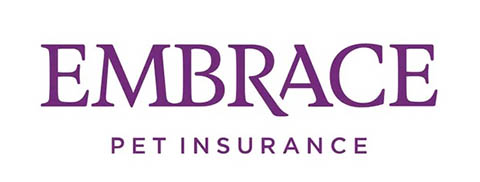






 Buyer’s Guide: How to Choose the Best Pet Insurance Provider in Missouri
Buyer’s Guide: How to Choose the Best Pet Insurance Provider in Missouri Conclusion
Conclusion